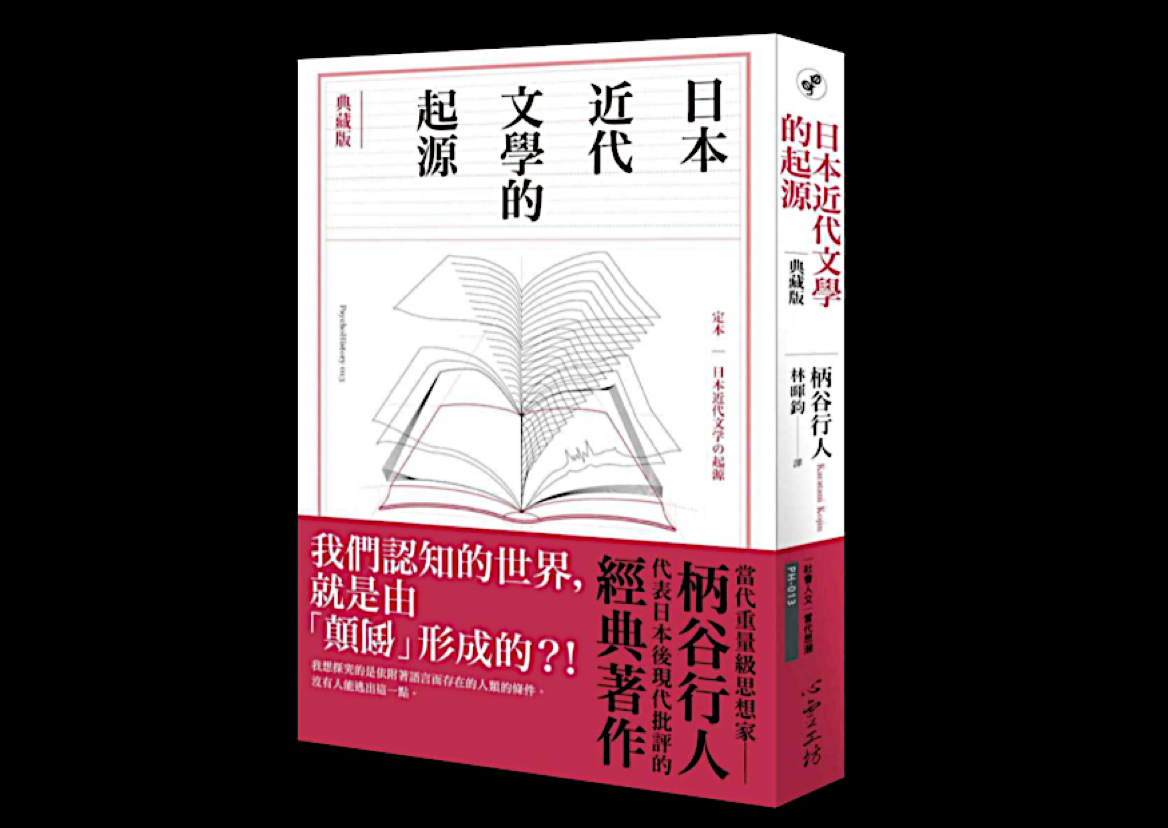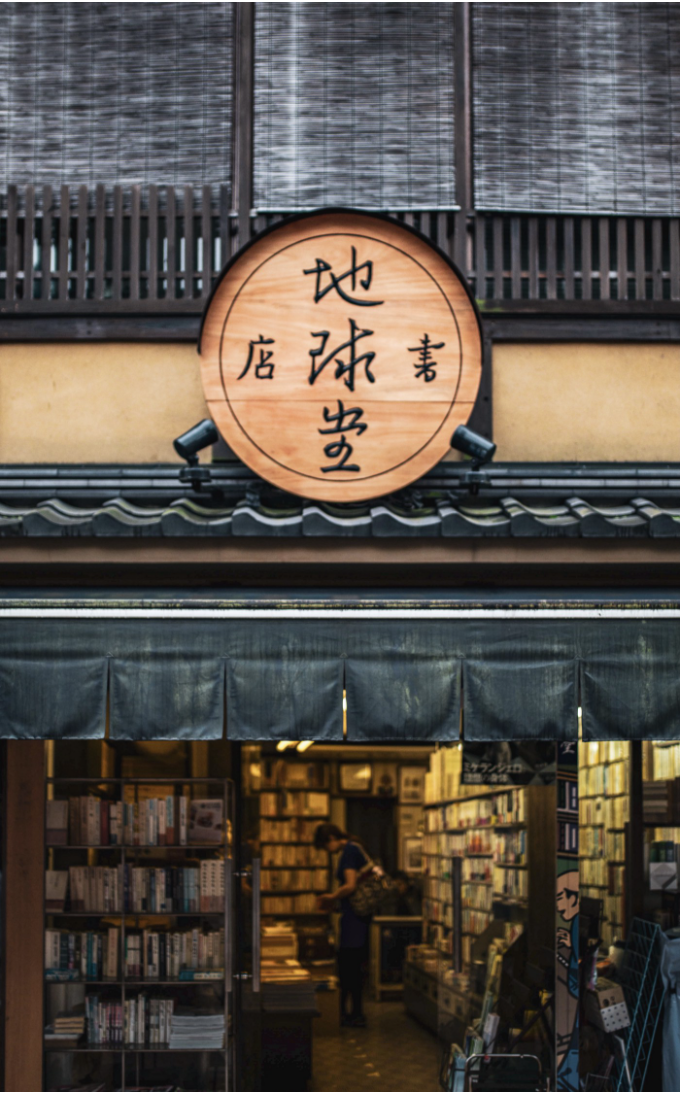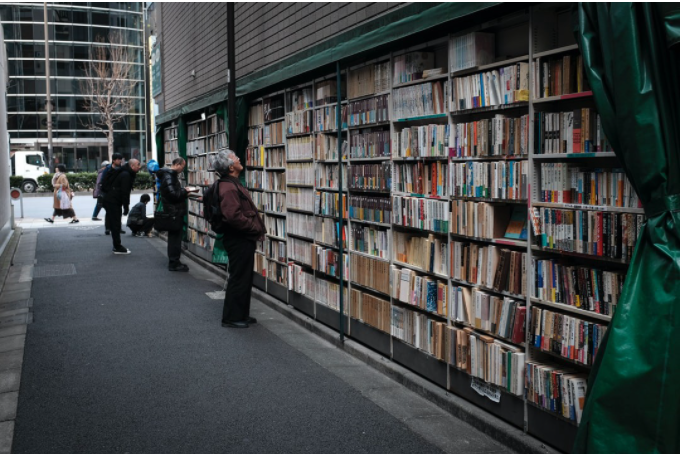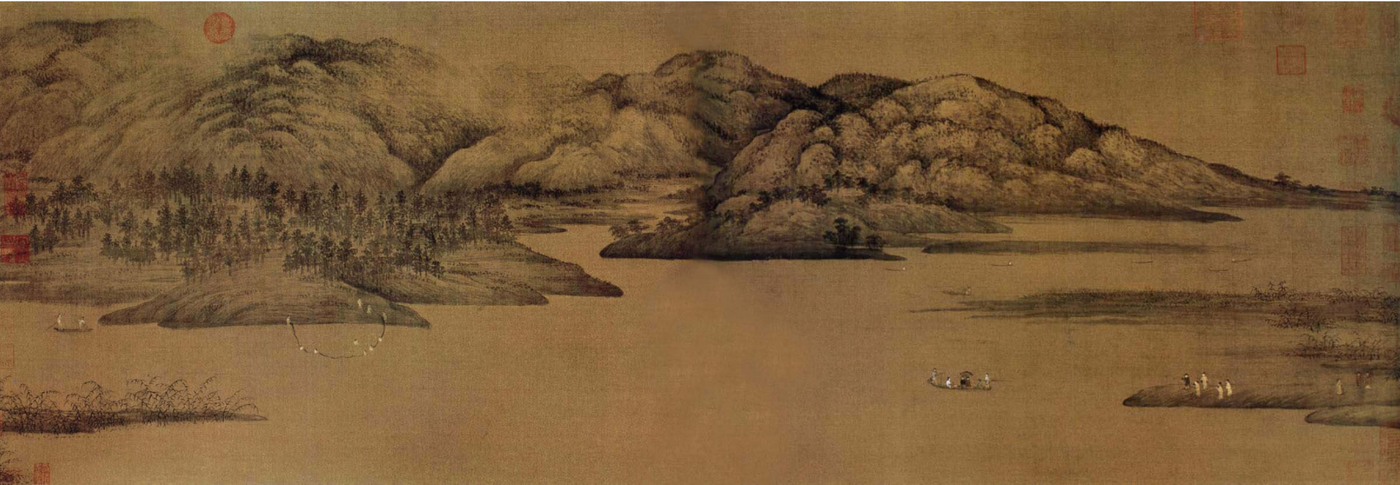"The Origins of Modern Japanese Literature" by Kakuto Karatani: Literature, "Landscape" as a Human
Thank you words. Publish this article invisibly
Link: https://user127869.psee.io/3gq4c6
In the market, Japanese modern literature has always been a subject and literary project that is deeply loved by readers, such as Mishima Yukio, Dazai Osamu, Akutagawa Ryunosuke, Kawabata Yasunari, or Tanizaki Junichiro and other writers, even if you have not read their masterpieces, they may They also often heard about, knew a thing or two, or often saw traces in bookstores, and even said, "As a human being, I'm sorry."
The work of these people is republished almost every year, with a new cover and a new cover. But this book, which includes criticisms, essays, etc., written on the reflections of Kyoto Karatani teaching Japanese literature at Yale University from 1975 to 1977, was published in 1980 - "The Origins of Modern Japanese Literature", even for the original For readers who often read or even have extensive knowledge of Japanese literature, it is not easy to enter immediately. It is a very deep and hard book, but it is full of insights.

In this book, Karatani goes deeper not only into the "content" of these literatures, but also into the conditions and related historical context of how literature came into being in modern times. When discussing "literature", Karatani intends to draw attention to the fact that "literature" in this book does not refer to those works or contents that we call "literature" in our daily life, but to those that make us think of a certain These are the implicit thinking and cognitive frameworks of "literature".
"Reading literature to know what literature is, is like washing blood with blood." - Soseki Natsume, "On Literature"
What exactly is "literature"? This is the central question of this book. Karatani's way of answering this question is very special. It is different from the discussion of "literature" in literary theory or literary history. He does not define "literature", nor does he define the content of literature. Realism, Romanticism) standards and concepts to discuss the meaning of "literature", but back to the change of language to discuss the formation of literature. In seven chapters, they explore different historical contexts one by one, pointing out how "modern literature" was constructed by society and the state for certain purposes, and in turn how literature shaped the culture of modern society. As he quotes Natsume Soseki's words in "On Literature", he wants to point out that the reason why "literature" is literature is precisely because he has never been just literature.

Rather than saying that literature is a cross-domain tool, it is better to say that literature is the product of people wandering and intersecting between different fields. To say that something is "pure literature" is rather absurd. This is also what makes "The Origin of Modern Japanese Literature" interesting to read, because his approach to text and ideas is not only original, but also quite delicate. Even if it's hard to read, this book is open to all. You can savor it carefully without feeling rejected.
Generally speaking, when it comes to literature, people always tend to classify works by various ideological trends or literaryisms, such as arguing about whose works or whose style of writing, naturalism, or romanticism and so on. Or think that the literature of a country can be divided into several periods, there are moments of just enlightenment, there are periods of less development, and there are more peak periods of maturity and transformation.
This has always been the way literary history has dealt with "literature". Kakuto Karatani contradicts this idea and believes that arguing about which works are realism and which are romantic, does not really understand the essence of literature, and does not see the importance of these works or the writer's ideas in the times, and even covers up the differences. A discussion of why. As for the "development" that divides a country's literature into different periods, it seems to presuppose that the emergence of literature, from its origin to the present, has tended to a specific writing form or theme, doctrine (for example, first through realism and then through Romanticism, Postmodernism, etc.), etc., without questioning whether these tendencies are real, or whether they must be so presupposed. Moreover, these preset directions and goals are nothing more than the direct application of the research results, ideas, and standards of Western literary history to the distinction between writers and works, but they never thought about the development of different regions under the influence of different histories. Works and literary views, even if they are similar in meaning of language or description of themes, may reflect different meanings.
What exactly is "modern literature"? Karatani's approach is not to explain what he defines as "literature", but to discuss the transformation of landscape painting and the birth of perspective in the field of painting, further emphasizing that the birth of "modern literature" is actually a new The "landscape" and the birth of a new "perspective".

Although the objects of medieval European religious paintings and Chinese landscape paintings are completely different, they have the same pattern of viewing objects. To be honest, when landscape painters paint pine trees, they paint the concept of pine trees, not the pine forest seen from a specific point of view and time and space. The so-called "landscape" is the object "held by a single person with a fixed viewpoint in a unified way". But the perspective method of landscape painting is not geometric. Therefore, in landscape paintings that seem to be just landscapes, there is no "landscape".
In landscape paintings, although there are mountains, water, pine trees, birds, etc., as long as you take a closer look, you will find that in most landscape paintings, although the brushwork and charm are different, the images of these scenes are similar. . Because in the past, people's ideas about painting were very different from today. Most of what they want to depict is not the real object in front of them, but to express a certain concept and image of a thing in their mind. Whoever behaves closer to the ideal form of this concept and image, the higher the natural evaluation. In other words, although landscape painting is often regarded as a "landscape", there is no real landscape in it, but people's concept, image and understanding of "landscape", or it can be said to be a psychological identity related to "landscape" and imagination.
Looking back at previous literary works (such as haiku, Tang poetry or Song poetry, etc.), we can also get similar results. It doesn't seem that important what the object in front of you is. What is important is how to use words to express the concept and ideal given to things, rather than the actual appearance.

Even if they are all the same "landscape", in the eyes of ancient people and modern people, I am afraid that the "landscape" they see is completely different. In painting, the idea of "landscape" began to change, which came from the birth of perspective in the Renaissance. Similarly, the emergence of "modern literature" is itself a change in perspective, changing people's concept and imagination of "landscape". Instead of describing "landscape" as a "concept of landscape", we describe landscape as the object of a scene.
To describe "landscape" as a landscape not only means to describe and sketch the actual scenery, but also has a new extension. For the writers at that time, the society and people in life also became a kind of "landscape" that needed to be portrayed.
But perhaps the biggest change after entering modern literature is that, in addition to daily life, society and people, people also begin to describe and recognize "I" as a landscape, an external object. In other words, "modern literature" has become a device that people use to recognize "self", and this "self" did not exist in people before modern literature, because this was not the way they used to know themselves, and it also caused Huge difference in viewing previous and present literature.
We often think that it was not until after modernism that literature began to "deeply" describe all kinds of deep, dark "human nature", "desire", "self" and so on "inner" things. However, Karatani believes that this is not a problem with the previous literature, but simply because the previous works did not have the installations that were specially arranged to allow modern people to see and understand objects such as "human nature", "desire", "self", etc. It is very difficult for us to feel the "desire" and "humanity" of people in the past, and so on, which we considered very "internal". Because these things, at that time, have not been consciously objectified, they are difficult to identify. The task of "literature" at that time was not to make people know "self" and so on. In fact, we can simply say that these "inner" things such as "human nature", "self", "desire" and so on in modern literature are actually all the writers consciously began to explore, imagine, create and intend to A new "landscape" that people can recognize.
To a certain extent, people not only see new ideas from the continuous intervention of Western countries, but also in these interventions, they have to construct themselves as a new "object". This is also the meaning of the whole "modern" and "modernization".

I don't remember where I saw it, but some people say that literature and art are an exploration of the inside. But in fact, there may be nothing but nerves, organs, cells, and bones in you "inside." What is considered to be "inner" has always been outer. What literature and art explore is not the "interior", but an exterior that we deeply want to give ourselves through language.
The essence of realism lies in non-affinity. That is, it prompts us to look at things that we are so used to seeing that we don't see. So there is no certain method to realism. Realism is the constant process of incompatibility with familiar things. In this sense, the so-called anti-realism, such as the works of Kafka, actually belongs to realism. Realism not only depicts landscapes, but also constantly creates landscapes. Those landscapes that no one has ever seen despite their fact, realism endows them with existence... If we focus on the object side, we will feel that modern literature is realism If it is on the subjective side, it will feel romantic.
We must note that no work purported to be a particularism is fully applicable and conforms to the standards set forth by the methods and ideas promoted by that particularism. In fact, even if it is realism, it is difficult to say that he is really a kind of "realism", otherwise why should we emphasize that it is a kind of "creation"? Realist works will not only have only realistic techniques, but also mixed with romantic techniques, but the proportion of the two will vary in different works. This phenomenon can be seen especially in Japanese literature, which is rapidly Westernized and introduced various Western thought trends at the same time.
What realism established was not the description of the scene, but, like the perspective method of the Renaissance, it provided a perspective or way of observation, so that the distance between us and the scene could be calculated. What realism first offers is not the object itself, but a way of perspective that allows everything to be placed in a uniformly scaled mean space and visual depth. In literature, he is a perspective device that allows us to view, analyze, and describe all things on an equal plane, and to reconstruct new objects in this space, to make new depictions, to make the work Generate a new "depth".
This is why Karatani has always emphasized that the origin of modern literature is the creation of a kind of "reversal". Things that used to be distant backgrounds began to be regarded as having far-reaching significance, and began to be regarded as an object to describe the "distance between us and them". ". At the same time, even "self" has become an object of oneself. To know "self", we can only take a step back in consciousness and imagine "self", just like "self" is a landscape that I want to watch seriously. Before, it was just a background, but now it must become an imaginary Focus, enter the meta-state to focus on cognition. "I" seems to be an inner self, but in fact it has long been reversed into an outer object.

Interestingly, when people began to write and recognize themselves as an external object, a "modern subject" and collective was born. Because in order for everyone to recognize and describe themselves as an external object, it is necessary to create a style that everyone can learn, read, speak, and write. Therefore, during the Meiji Restoration, Japan, like the "vernacular movement" in China later, implemented a new style of so-called "consistency of language and literature", no longer using the more difficult ancient Chinese characters, and made pinyin that is easy to remember the characters, which is accessible to everyone. Implement compulsory education. From this, a new national identity was created: the "citizen".
"The most important starting point of the 'Language and Literacy' movement is the new concept of 'characters'... The message we clearly got from the proposal of 'Abolition of Chinese characters' is the idea that 'characters must serve the voice'. And this It will inevitably lead to the emphasis on spoken language.”
“‘Language Congruence’, unlike its name, is in fact a new kind of ‘wen’. It assumes that writing is only a transparent means of expressing inner ideas, and in this sense ‘writing’ (écriture) is eliminated (author's note: because "writing" is regarded as speaking). While "consistency between words and texts" creates an inner subject, it also creates an objective object, and concepts such as "self-expression" and "realism" come from here. "
This is how Japanese, the "national language", was created. Benedict. In "Imagined Communities", Benedict Anderson pointed out that the identity of the modern state is constructed through modern literature, because when people find that they write and speak the same language, and look at it in this way. A novel written in a style will form an "imagined community".
In this way, in "The Origin of Modern Japanese Literature", Karatani not only questioned people's imagination of "literature" in general, but also refreshed their understanding of "modern times" and "subject", and even finally made people reconsider "the country". ' essence. Because the construction of "Japan", "modern literature", "nationality" and "I", their origins are all innovations in language and style, the effects they produce, and the "landscapes" they produce.
"I don't care about modern criticism, or modern literature. What I want to explore is the human condition that is dependent on language. No one can escape this. One day, we will all be painfully Feel it." - Kanagarani Pedestrian, postscript to the Bunko edition
After reading it, it may make people smile. Literature seems to be the expression and expression of a subject, but in the end, perhaps the "I" created in it is actually just a landscape brought about by the change of language. . You may never know yourself, all you know is about speaking your own language. "The Origin of Modern Japanese Literature" not only deeply reviews and dissects the historical changes in modern Japan, but also deeply excavates the meaning of language to people.
(This article is simultaneously published on the square grid blog: Literature Lab )
FB Fan: https://pse.is/TCBRA
IG account: https://www.instagram.com/bungoussteins/
Like my work? Don't forget to support and clap, let me know that you are with me on the road of creation. Keep this enthusiasm together!



- Author
- More